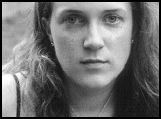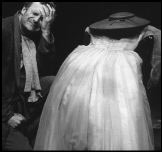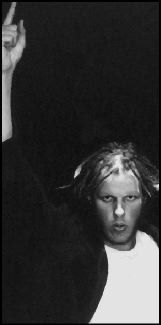FIRST PERSON CINEMA: CELEBRATING PERSONAL DOCUMENTARY
Northwest Film Forum, Little Theatre, 619 19th E., 329-2629 Sept. 6-30
“I” is both the most ready and the most troublesome tool on any artist’s workbench. Using yourself as material is risky, especially for a filmmaker, when the searing camera lens reveals intimate moments. “Don’t ever make personal documentaries,” warns Ross McElwee, who made the digressive, autobiographical film Sherman’s March. “It will ruin your life.” But the real danger is self-indulgence; focusing on Number One too often leads to a big pile of Number Two.
Unless you go to a lot of film festivals, you’re not likely to see the current explosion in documentary films, a surge that’s due in part to the mentoring of established documentarians like McElwee, Robb Moss, and Ed Pincus. The opening week of this series offers a glimpse of what’s going on—as well as some cautionary examples for filmmakers eager to make “personal” movies.
Harvard filmmakers Justin Rice and Randy Bell let their admiration of Bob Dylan get the best of them in Look Back, Don’t Look Back, questing to New York to find and interview Dylan to recreate D.A. Pennebaker’s groundbreaking 1965 work of cinema verit鮠Watching their hapless optimism get slowly crushed is fun, and their willingness to laugh at themselves is endearing, but their objective seems frivolous. I don’t think I’d return their calls, either.
In Portland, Greta Snider cleverly uses disjointed images to represent the differing memories of a disastrous adventure. But is Snider’s friends’ tale of their defeated pursuit of a week of binge drinking worthy of our attention?
The pitfalls of first-person are best shown by Mitch McCabe’s Playing the Part. The earnest Harvard student reveals everything on film—her mother’s iron will, her boob-job-doctor father showing off his handiwork, herself in her mother’s dresses, frank conversations with her girlfriend—while she continues to masquerade as a debutante, wanting but unable to tell her parents she’s a lesbian. You might empathize with her tortured anxiety. Or you may just tire of her whining.
By contrast, Family Secret, Pola Rapaport’s documentary on her discovery of a brother in Romania, is a far more seasoned and self-aware work from a mature woman. While the film is deeply personal, Rapaport is wise enough to keep the mystery of her father’s past at the center of her story, and retains our interest. Unlike the more youthful filmmakers, Rapaport understands the danger of that personal pronoun. There is, after all, a difference between having a story to tell and having one worth watching.








